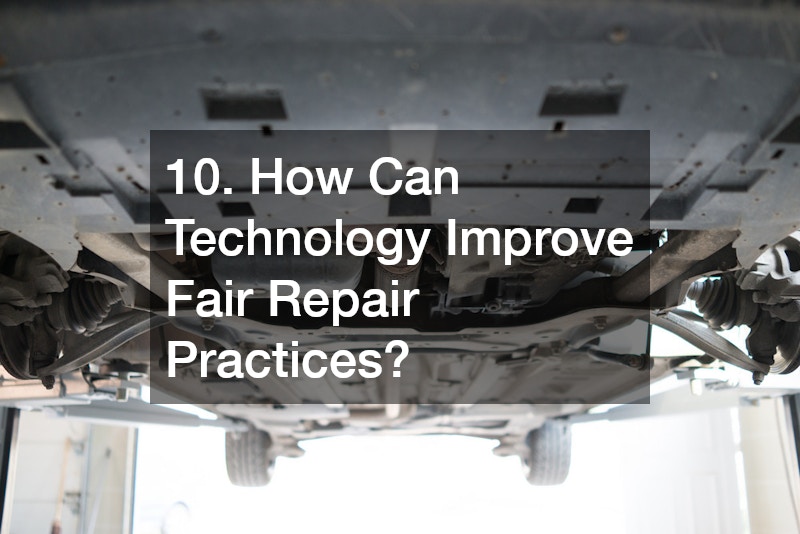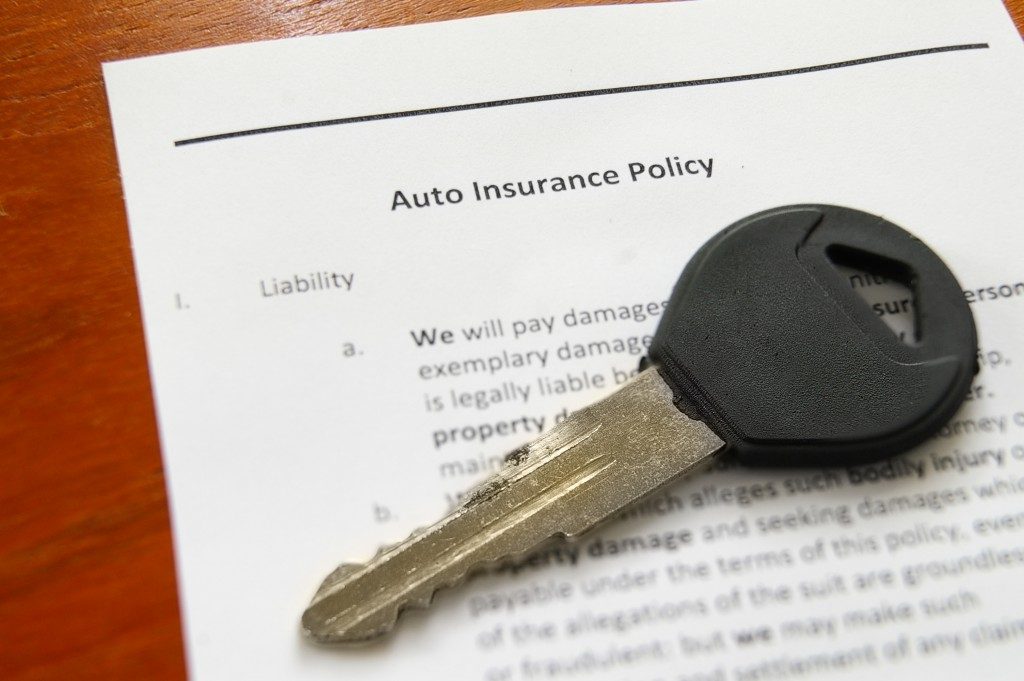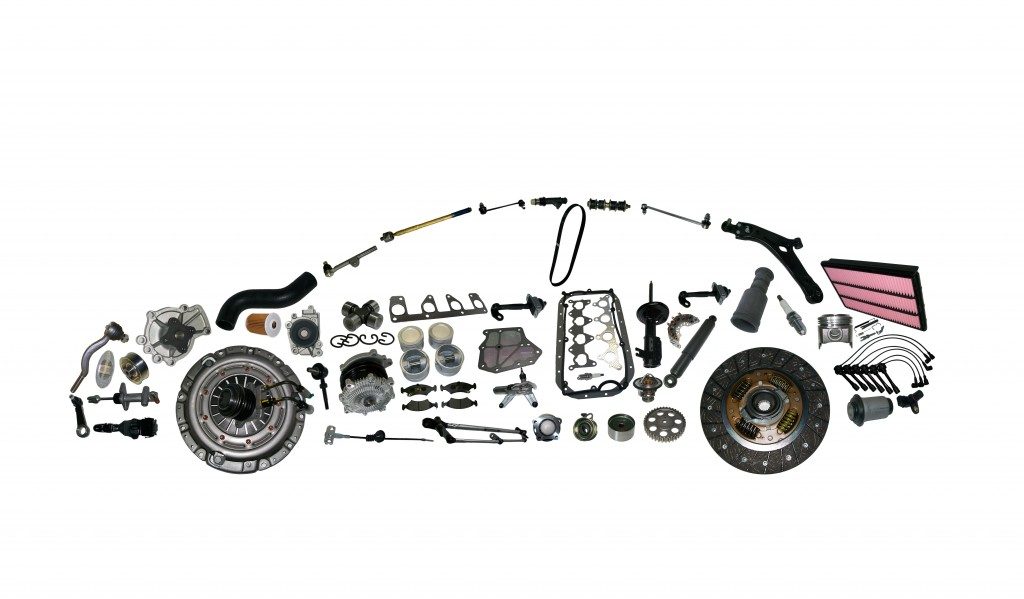Fair repairs are fundamental to not only maintaining vehicle efficiency but also to ensuring consumer protection. As cars become increasingly advanced, ensuring that both independent mechanics and consumers have access to necessary repair information and tools is crucial. Fair repair rights advocates for transparency in the automotive industry, protecting consumers from monopolistic practices by manufacturers. They empower car owners by providing them more flexibility on where and how to get repairs done. These rights have become a critical topic for legislation, consumer rights groups, and those interested in extending the lifespan and efficiency of their vehicles.
In an industry traditionally dominated by manufacturer partnerships with specific car repair shops, fair repairs serve as a leveler, fostering competition and innovation. Car owners stand to save money and have more choices in repairing their vehicles through numerous certified car repair shops offering competitive service quality. Playing a critical role in consumer rights, fair repairs affect everyone from the ordinary car owner to fleet operators relying on efficient cargo trailers and commercial vehicles.
The discussion around fair repair rights touches on various aspects, from legislation and its beneficiaries to the challenges in implementing fair repair practices. With innovation rapidly changing the automotive landscape, the role of fair repairs goes beyond mere maintenance; it also impacts technological advancements, market dynamics, and even environmental concerns. As we delve deeper into this topic, the importance of fair repairs becomes increasingly evident, providing essential insights into how these practices affect our day-to-day interactions with our vehicles.
1. What Are Fair Repairs?

Fair repairs refer to the right of consumers and independent mechanics to access tools, manuals, and information needed to repair vehicles. Unlike traditional repair setups where manufacturers hold exclusive repair rights, fair repairs advocate for an open-access environment. The primary aim is to break the dependency on specific car repair shops that profit from exclusive deals with automakers.
This approach not only democratizes repair processes but also helps maintain competitive pricing in the industry. Car muffler repairs, for example, when done under fair repair principles, become more accessible and less expensive for consumers. Open, fair repair practices assure consumers that maintenance is done according to industry standards and without excessive waiting times or exorbitant costs.
Fair repairs challenge the status quo, where manufacturers could previously control the repair and replacement components of their vehicles. By embracing this equitable approach, consumers enjoy enhanced rights and the ability to use any qualified car repair service without concerns over warranty violations. This ensures transparency and ensures that the market for auto repairs thrives without unnecessary restrictions.
2. How Do Fair Repairs Affect Vehicle Longevity?
The fair repairs approach significantly impacts the longevity of vehicles by promoting timely and efficient repairs. Proper repair prevents further damage and helps maintain the vehicle’s integrity over time. When consumers can access a wide range of service providers, like those specializing in car muffler repairs, they can address issues early, preventing costly future repairs.
Regular and fair repair practices allow for routine maintenance checks and timely repairs, enabling vehicles to run smoothly, reducing the wear and tear associated with ignored or delayed repairs. This oversight helps extend the life of vehicles, ensuring that all parts function optimally, from the engine to the muffler system.
Moreover, consistent fair repairs enable the incorporation of high-quality and suitable replacement parts, which are crucial in maintaining the vehicle’s original specifications. As a result, car owners experience not only prolonged vehicle lifespan but also consistent performance that boosts reliability and safety on the road.
3. Why Are Fair Repair Rights Important?
Fair repair rights hold significant importance for consumer protection, ensuring that vehicle owners are not beholden to restrictive repair protocols by manufacturers. These rights allow owners to seek services, like auto dent repairs, from numerous repair shops, broadening their options for quality service. By eliminating monopolistic practices, consumers gain access to competitive pricing and service excellence.
Transparent access to necessary repair information fosters an environment where auto dents and other vehicular repairs can be conducted smoothly without proprietary hurdles. This openness enables consumers to make informed decisions about vehicle repairs, ensuring satisfactory outcomes that align with their budget and needs.
By advocating for fair repair rights, consumers and independent repair shops can harness the power of knowledge sharing and open competition. It serves as a platform where the best practices in vehicle repairs are accessible to all, improving service quality across the board and bolstering consumer confidence in the automobile maintenance industry.
4. Who Benefits from Fair Repairs?

Fair repairs offer vast benefits to various stakeholders, from individual consumers to large-scale service providers. Independent car repair shops gain significantly, as they can access the necessary tools and information to perform high-quality repairs. This access fosters their business growth and fosters healthy competition across the industry.
Consumers, including those seeking truck accident attorneys, benefit from fair repair practices by having multiple repair options for their damaged vehicles. They enjoy cost-effective services tailored to address specific needs, improving overall consumer satisfaction and trust in repair services.
Fair repairs introduce a competitive edge in the market, enabling smaller repair businesses to carve out a niche and gain customer confidence. This dynamic environment not only triggers growth across the automotive service industry but also promotes innovation as shops strive to improve their service offerings and operational efficiency.
5. What Legislation Supports Fair Repairs?
Various legislative efforts around the globe are driving forces behind the fair repair movement. Laws like the Right to Repair Act in the United States encourage manufacturers to provide necessary repair information, balancing the scales for independent repair shops and consumers. These regulations aim to reduce dependency on exclusive manufacturer-authorized services.
Enacting such legislation helps ensure that elements like police car lights are customized and repaired with ease, following set standards. These legal frameworks promote transparency, ensuring that repair operations across various vehicle types meet required safety and operational benchmarks. This transparency gives consumers assurance concerning the reliability and quality of automotive repairs.
Policymakers continue to work on refining these laws to better support fair repairs. This ensures that consumers, businesses, and stakeholders operate under clear and fair guidelines that support innovation, consumer rights, and a competitive market landscape in automotive repairs and maintenance.
6. How to Ensure Fair Repairs for Your Vehicle?
Ensuring fair repairs involves a proactive approach by consumers in utilizing their rights and understanding how to navigate the repair market. Seeking services from accredited car repair shops ensures adherence to industry standards and fair practices. Consumers should insist on transparency concerning repair diagnostics and solution implementations.
Utilizing consumer protection resources enables individuals to make informed decisions when engaging repair services for cargo trailers or other vehicles. By being informed, consumers can assert their rights and choose service providers who deliver fair repair practices focused on transparency and accountability.
It’s also effective for consumers to keep abreast of ongoing legislative changes regarding fair repair policies. Understanding their rights under the law empowers them to challenge any unfair practices and insist on fair treatment and solutions when seeking repairs. This vigilance plays a crucial role in ensuring fair repair adherence across the automotive service industry.
7. What Challenges Exist in Implementing Fair Repairs?

Despite the numerous benefits, implementing fair repair practices encounters several challenges. Manufacturer resistance often poses a significant hurdle, as companies may hesitate to release proprietary repair information to independent mechanics. This reluctance stems from concerns about the potential sales loss of officially licensed replacement parts or services.
There are also technical challenges in maintaining standardization across diverse car makes and models during repairs. With car washing service providers offering different levels of repair and maintenance, ensuring uniformity in practices can be difficult. Addressing these discrepancies requires collaboration across industry stakeholders to standardize best practices.
Additionally, the high cost of acquiring advanced diagnostic tools and equipment necessary for fair repairs might deter smaller repair shops from offering comprehensive repair solutions. Bridging these gaps calls for concerted efforts to make essential information and equipment more accessible and affordable to all stakeholders involved.
8. How Do Fair Repairs Impact Innovation in the Automotive Industry?
Fair repairs yield a positive influence on innovation within the automotive industry. They encourage independent repair shops to invest in advanced technologies and techniques that optimize repair processes. This innovation promotes practical, efficient solutions that benefit both providers and consumers.
For instance, boat repairs carried out by newly equipped repair shops offer insights into improved, state-of-the-art repair technologies seeping through into the automotive field. This cross-industry learning facilitates the adoption of practices that focus on improved vehicle performance, durability, and safety.
The competitive nature spurred by fair repairs compels automotive players to constantly improve their service and product offerings. This ensures continuous industry progression, leading to enhanced consumer satisfaction and laying down a vibrant future for automotive repairs and services.
9. What Role Do Manufacturers Play in Fair Repairs?
Manufacturers hold a pivotal role in the dynamics of fair repairs, being the primary producers of vehicles and related repair information. Their willingness to provide repair data to independent services can encourage fair repair practices. By facilitating access, they contribute to a culture centered around transparency and consumer rights.
However, some manufacturers may view these practices as a threat to their revenue, particularly when it concerns services or sales of used RVs and related components. Regardless, collaboration with independent repair shops can also improve consumer loyalty and satisfaction, proving beneficial for manufacturers in the long run.
Manufacturers can assist the fair repairs initiative by adopting open frameworks that encourage innovation and compatibility across various repair platforms. By doing so, they ultimately support a mechanic-friendly approach that benefits them through potential improvements in brand perception and market share.
10. How Can Technology Improve Fair Repair Practices?

Technology has great potential to enhance fair repair practices by introducing streamlined processes that boost diagnostic and repair accuracy. Advanced computer systems and machine learning can diagnose problems with RV repairs, offering precise solutions while reducing human error. These technologies streamline repairs, making them more efficient and reliable.
The integration of Internet of Things (IoT) technology paved the way for more connected, smarter vehicles. With these advancements, issues can be detected remotely and addressed more swiftly, equipping repair shops with data-driven insights that facilitate proactive maintenance and repairs.
Additionally, digital platforms designed to share repair information empower consumers to be well informed. These platforms can guide consumers in understanding fair repair rights and pinpointing trustworthy service providers. As technology evolves, the synthesis between innovation and fair repairs becomes increasingly beneficial for all stakeholders involved in the automotive repair ecosystem.
Understanding These Fair Repairs For Vehicles
Fair repairs emphasize the significance of consumer rights in the vehicle repair ecosystem. By providing access to information and resources, they level the playing field, encouraging competition, fair pricing, and improved service quality across the automotive industry. Legal frameworks supporting fair repairs are pivotal in ensuring these practices are implemented consistently, while also fostering innovation and providing consumers with reliable service options.
These principles of fair repairs also extend to challenging the limitations imposed by traditional manufacturer-centric repair systems. They empower consumers to make informed choices, support independent repair shops, and encourage innovation, contributing to the broader discourse on consumer rights and industry transparency. As more legislative actions adopt fair repair principles, we witness a shift towards a more balanced, consumer-focused automotive repair landscape.
As technology and innovation continue to advance, the incorporation of fair repairs within the automotive sector grows increasingly beneficial. By embracing fair repair practices, stakeholders across the industry can foster a collaborative environment that translates into a better customer experience, increased service variety and quality, and a more robust, competitive marketplace.
Ultimately, fair repairs have forged a path towards a more inclusive and transparent automotive industry, encouraging continuous improvement in vehicle maintenance and repair practices. This evolution promises a future where both consumers and service providers benefit from improved rights, quality, and fairness within the automotive landscape. If you have any more questions about fair repairs or repairs in general, visit a local car repair shop, and an expert should be able to answer any questions.



